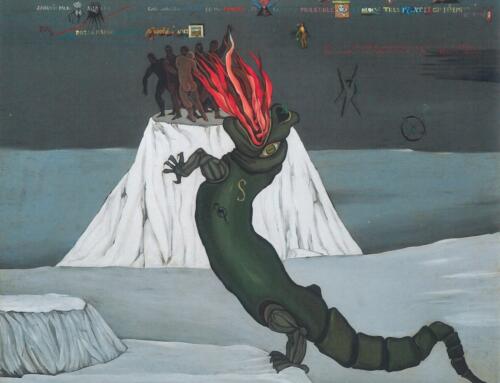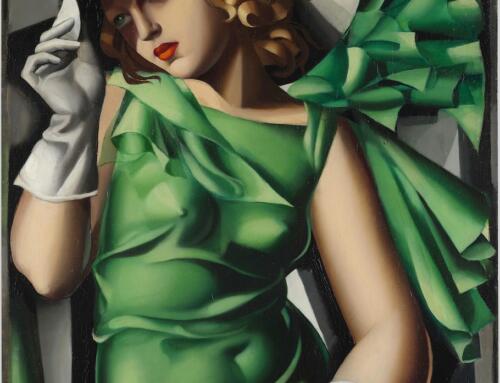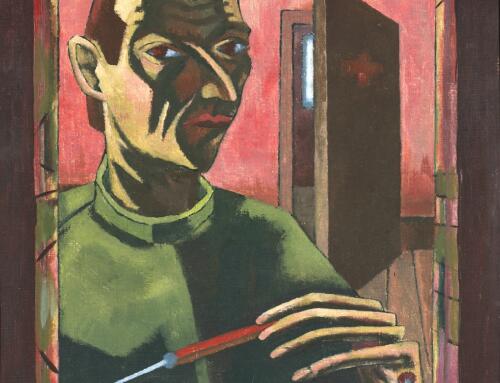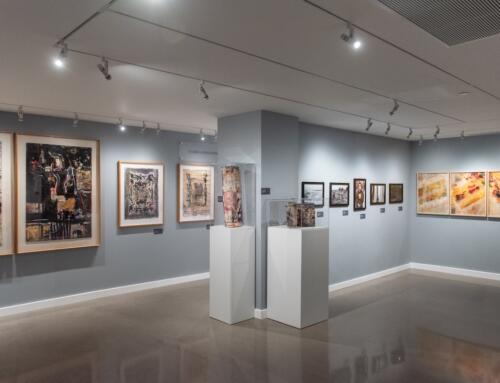Is this the month of love, just because Valentine’s Day is on the 14th? Let’s just make it about love – love for those who are marginalized and persecuted, and those who have to leave their home to save their lives, and find a new home, some even multiple times during their lifetime.
WEDNESDAY, FEBRUARY 14 ONLINE
12:00 PM EST
”THE ART OF MARC KLIONSKY:
Shaping a Three-World Condition
from Minsk to New York”
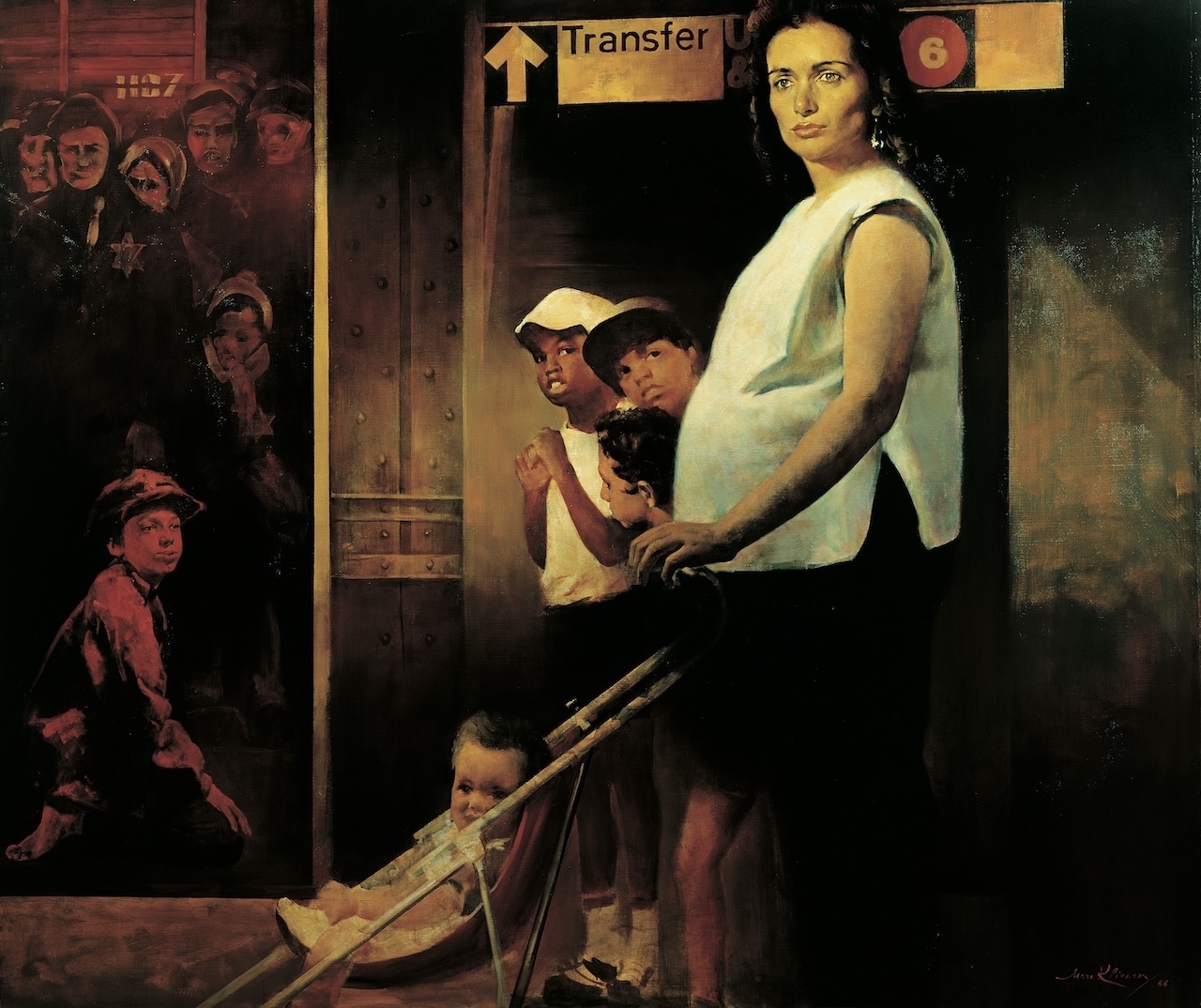
In this event Georgetown University professor and author, Ori Z Soltes, will explore the life and work of Marc Klionsky (1927–2017), in part through conversation with his daughter, the scholar and artist, Nadia Klionsky.
Born in the Soviet Union, Klionsky managed to navigate what has been called a “two-world condition”—creating the particularized Soviet Socialist Realist work that was acceptable to the Stalinist and post-Stalinist State while allowing his soul to reveal itself in work that only a very few trusted viewers might see. As a Jewish artist, in fact, he lived through a “three-world condition,” needing always to negotiate where that part of his identity might or might not express itself in his art.
The artist managed to immigrate—not without difficulty—to New York City in 1974, where he became particularly known for his insightful portraits of world figures who articulated the 20th century, from Golda Meir to Dizzy Gillespie.
WEDNESDAY, FEBRUARY 28 ONLINE
12:00 PM EST
”I’m always on the go…”
The painter Franz Domscheit/
Pranas Domsaitis (1880-1965)”
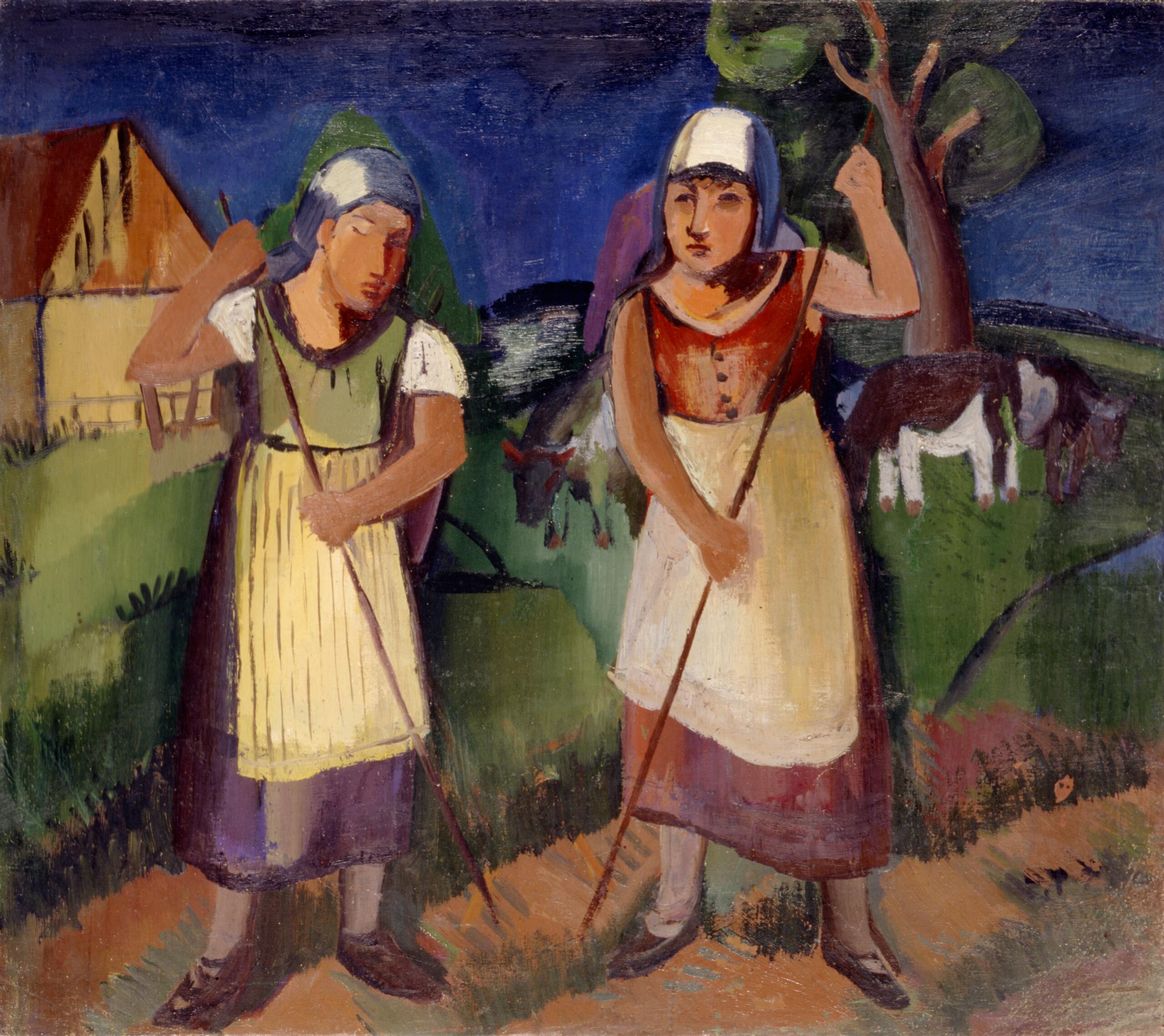
Searching, wandering, not arriving – this is how the person and art of Franz Domscheit/Pranas Domšaitis can be characterized. Born into a German-Lithuanian family as the son of a farmer and innkeeper, it was primarily his Lithuanian origins that interested him. The early landscape and cultural impressions of his homeland, Prussian-Lithuania, at the interface of German and Lithuanian culture, shaped his work throughout his life. Landscape is one of the painter’s main themes, who is primarily perceived as an expressionist.
After Domscheit was branded a representative of “degenerate art” during the Nazi era, he retreated to the Alps and into internal exile. In 1949 he finally emigrated to South Africa.
In this event, Jan Rüttinger, deputy museum director and curator of art at the East Prussian State Museum in Lüneburg, Germany, will speak about the artist, who was a friend of Fritz Ascher and fellow student at the art academy in Königsberg.
We are very excited, so we already announce our upcoming book launch at Fordham University in New York. Safe the date!
MONDAY, MARCH 18
6:00 PM EST
Book Launch
Fordham University School of Law
Conference Room 7-119
150 West 62nd Street
New York, NY 10023
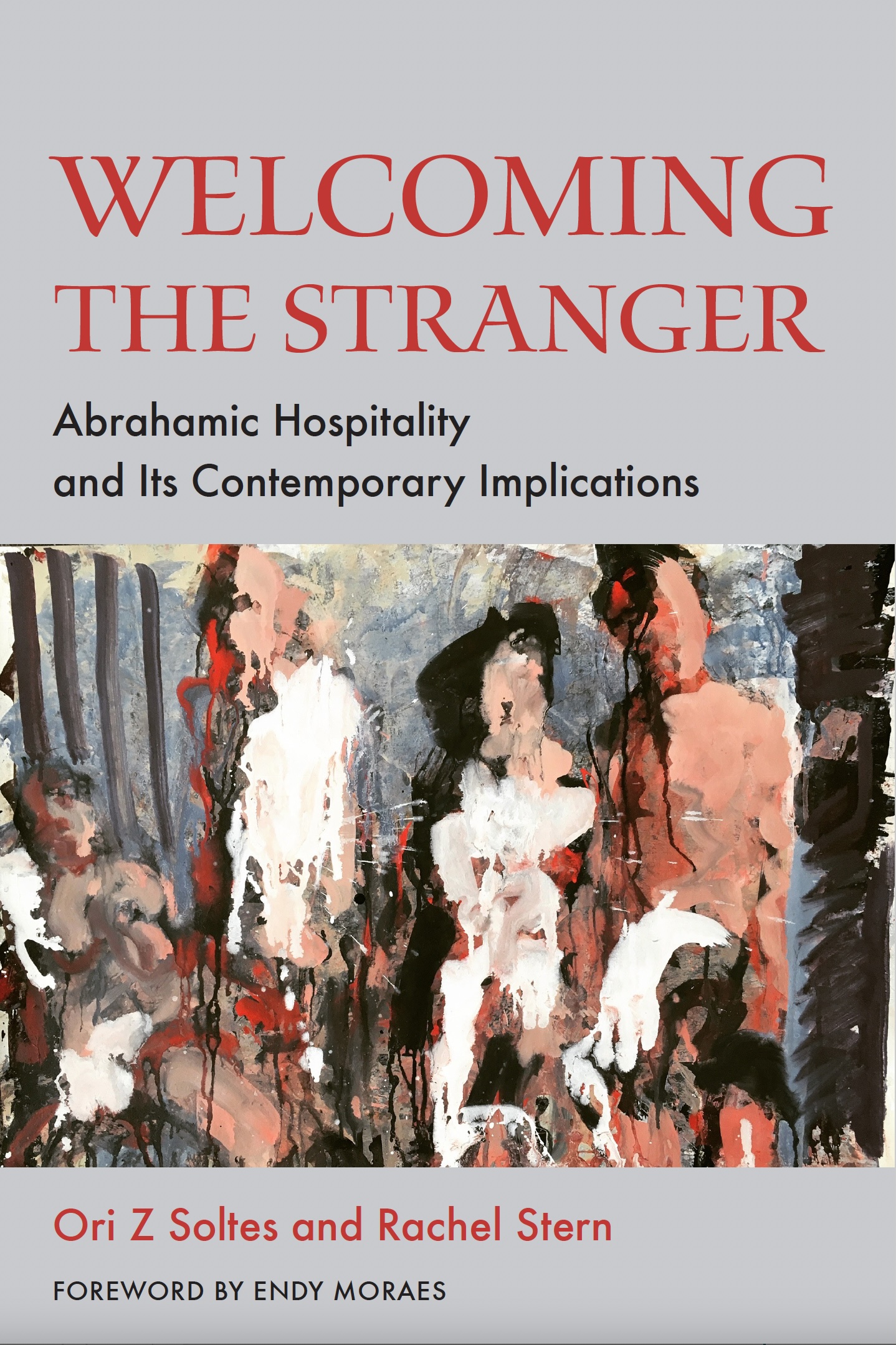
Join us for an evening of stimulating conversation, and refreshments, as we celebrate the publication of Welcoming the Stranger. Abrahamic Traditions and Contemporary Implications. Advance copies of the book are available for purchase.
This book is a collection of thought-provoking essays exploring the theme of hospitality as a means of building bridges between different cultures and communities. This book is a must-read for anyone interested in interfaith dialogue, social justice, and creating a more inclusive society.
The event is generously co-sponsored by 1014.
If you missed our two January events, you can watch the recordings here:
At the end of this month, we commemorate the 130th birthday of the artist Polish-born Jewish artist Arthur Szyk (Łódź, 1894—1951 New Canaan, CT), who is part of our online exhibition “Identity, Art and Migration.”
This four-part lecture series by Szyk scholar Irvin Ungar will explore how and why Szyk is the artist of and for the Jewish people, and the ways his art and spirit remain eternal in the service of mankind.
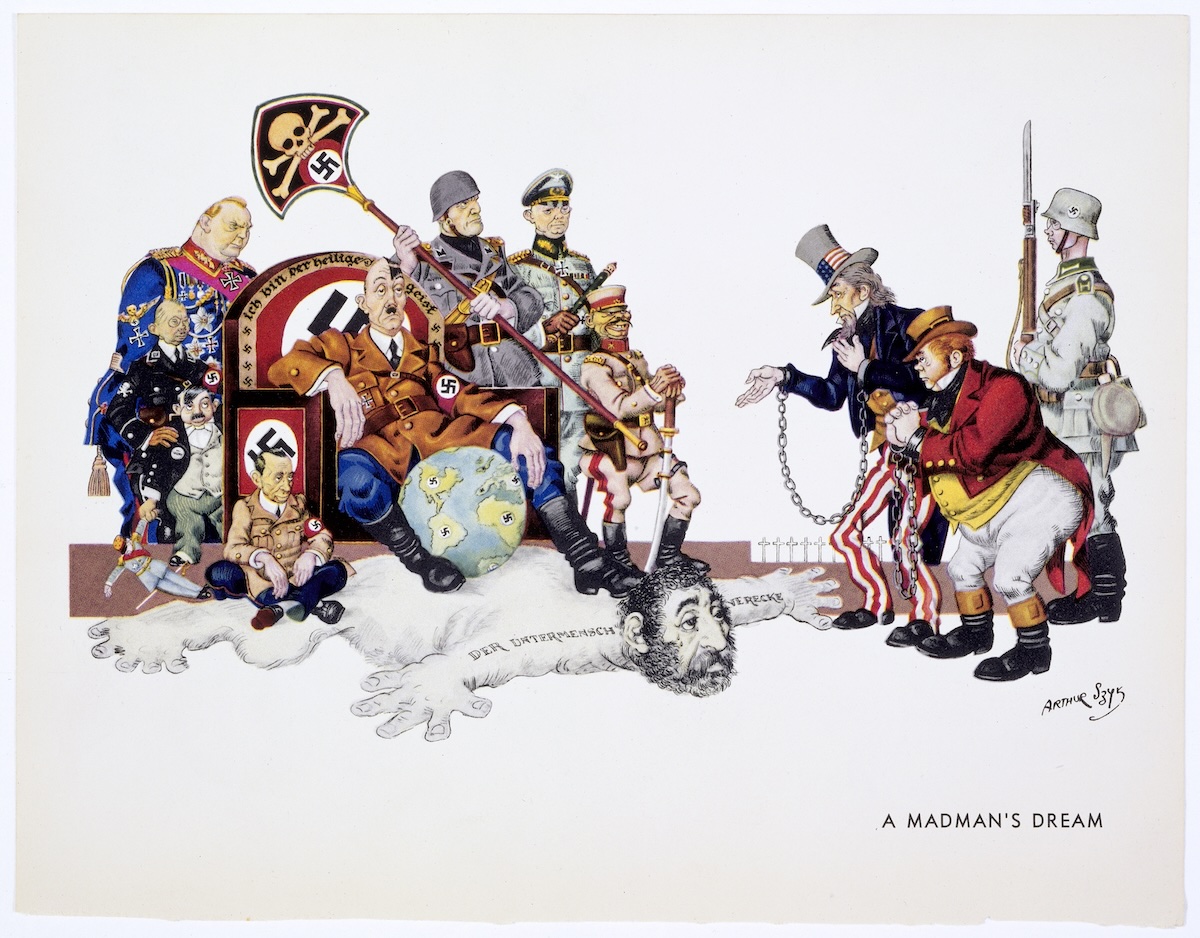
Over the past weeks and months, the importance of looking back 100 years and learning what happened in Germany and Europe in the years leading up to Nazi Germany has become very clear.
The Fritz Ascher Society for Persecuted, Ostracized and Banned Art does just that. Our mission is teaching fact-based history by discussing, publishing and exhibiting artists who were marginalized and persecuted by the German National Socialist regime between 1933 and 1945.
Please donate generously to make programs like this possible. THANK YOU.
The Fritz Ascher Society is a not-for-profit 501(c)3 organization. Your donation is fully tax deductible.
Sending love!
All best wishes,
Rachel Stern
Executive Director



